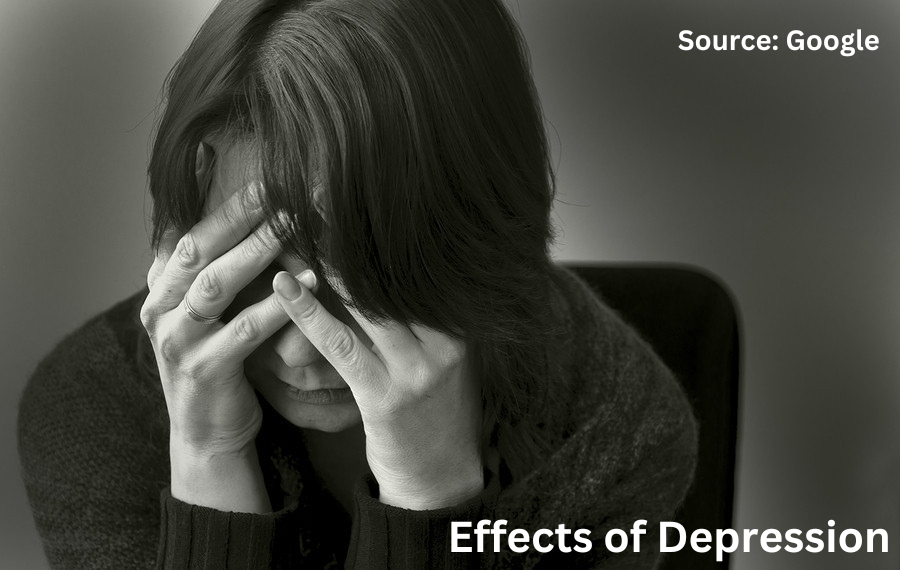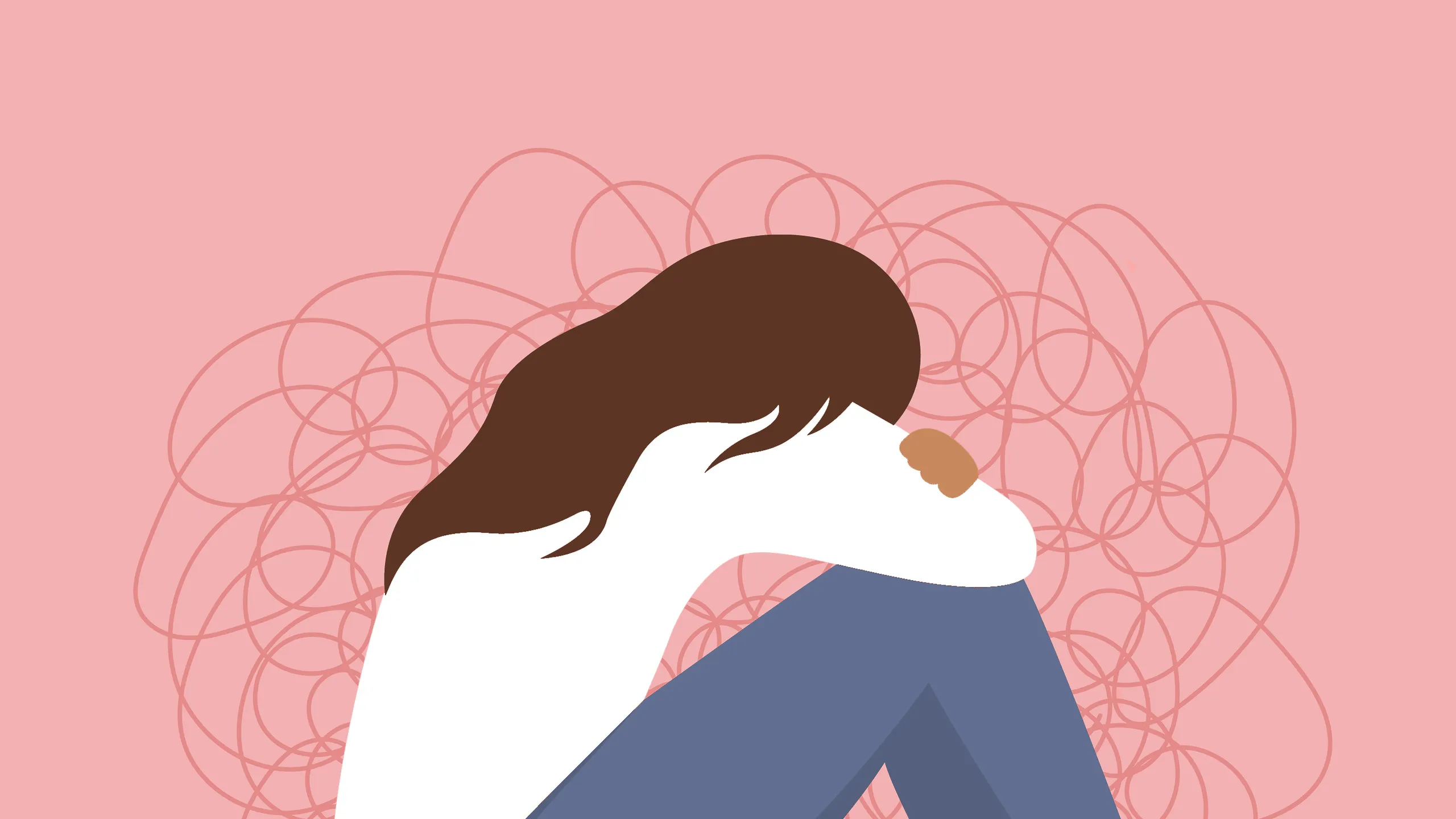Depression, a widespread mental health disorder, has a profound impact on individuals’ lives. It affects millions of people worldwide and can have serious consequences on one’s emotional, mental, and physical well-being. In this article, we will explore the various effects of depression, shedding light on the many ways this condition can impact a person’s life and overall health.
The Emotional Toll of Effects of Depression
Depression is often associated with a persistent sense of sadness and hopelessness. People who suffer from depression may experience overwhelming feelings of despair, which can affect their ability to find joy and meaning in life. This emotional turmoil can manifest in several ways, effects of depression including:
- Persistent sadness: Individuals with depression often experience a deep and prolonged sense of sadness, making it challenging to feel any form of happiness.
- Loss of interest: Depression can lead to a loss of interest or pleasure in activities that once brought joy, such as hobbies or social interactions.
- Irritability: Many individuals with depression may become easily irritated or angered, even over minor issues.
- Guilt and worthlessness: Feelings of guilt and worthlessness are common among those with depression. They may perceive themselves as a burden to others or as failures.
- Difficulty concentrating: Depression can make it hard to concentrate, which can impact one’s work or academic performance.
The Mental Strain
Apart from the emotional toll, depression also exerts significant strain on a person’s mental well-being. This can result in cognitive impairments and other challenges, effects of depression:
- Cognitive difficulties: Depression often leads to problems with memory, decision-making, and problem-solving. These cognitive impairments can have an impact on daily life.
- Low self-esteem: A negative self-image and low self-esteem are common among individuals with depression, which can further worsen their mental state.
- Rumination: Depressed individuals may engage in excessive rumination, dwelling on negative thoughts and experiences, which can exacerbate their condition.
- Suicidal thoughts: In severe cases, depression may lead to suicidal thoughts or behaviors. It is crucial to seek help when these thoughts arise.
The Physical Consequences
Depression isn’t limited to emotional and mental effects; it can also take a toll on one’s physical health:
- Sleep disturbances: Many people with depression struggle with sleep problems, such as insomnia or excessive sleepiness, which can contribute to fatigue and worsen their condition.
- Appetite changes: Depression can lead to appetite changes, resulting in either weight loss or gain, which may have additional health implications.
- Fatigue: The emotional and mental burden of depression often results in chronic fatigue, making it difficult for individuals to find the energy for daily tasks.
- Physical aches and pains: Depression can manifest as physical symptoms, such as headaches, stomachaches, or muscle pains, even in the absence of an underlying medical condition.
- Compromised immune system: Prolonged depression can weaken the immune system, making individuals more susceptible to illnesses.
The Impact on Relationships Of the Effects of Depression
Depression doesn’t only affect the person experiencing it; it can have far-reaching consequences on their relationships with family, friends, and colleagues, effects of depression:
- Social isolation: People with depression may withdraw from social interactions, leading to feelings of loneliness and isolation.
- Strained relationships: The emotional instability and irritability associated with depression can strain relationships, leading to conflicts and misunderstandings.
- Impact on family life: Family dynamics can be disrupted as a result of depression, affecting not only the individual but also their loved ones.
- Work and career: Depression can lead to decreased productivity, absenteeism, and potential job loss, impacting both the individual and their employer.
The Financial Implications
Depression can have significant financial consequences, often overlooked:
- Medical expenses: Seeking treatment for depression, including therapy and medication, can result in substantial medical expenses.
- Lost income: Individuals with depression may experience periods of unemployment or reduced income due to their condition.
- Decreased productivity: At work, depression can lead to decreased productivity, which can impact job performance and advancement.
The Vicious Cycle
Depression often creates a vicious cycle that can be difficult to break free from:
- Self-destructive behaviors: Some individuals turn to self-destructive behaviors, such as substance abuse, as a way to cope with their emotional pain.
- Physical health issues: The physical health consequences of depression can further exacerbate the emotional and mental aspects of the condition.
- Isolation: As depression leads to social isolation, the lack of support and connection can intensify the depressive symptoms.
- Worsening depression: These factors contribute to a worsening of the depression, making it even more challenging to escape the cycle.
Seeking Help and Treatment
Recognizing and addressing depression is crucial for those affected by it. Treatment options are available and can include, effects of depression:
- Therapy: Various forms of therapy, such as cognitive-behavioral therapy (CBT), can be effective in helping individuals manage their depression.
- Medication: Antidepressant medications can be prescribed by a healthcare professional to alleviate depressive symptoms.
- Lifestyle changes: Making positive changes in one’s lifestyle, such as engaging in regular physical activity and maintaining a balanced diet, can have a positive impact on depression.
- Support groups: Joining support groups can provide a sense of community and understanding, reducing feelings of isolation.
- Professional help: Seeking the guidance of a mental health professional can be invaluable in the treatment of depression.
FAQs
What are the 5 effects of depression?
Depression can stem from various factors such as genetic predisposition, chemical imbalances in the brain, traumatic life events, chronic medical conditions, and prolonged stress. Identifying these factors is crucial for effective treatment.
What are the top 3 symptoms of depression?
Common symptoms of depression include persistent feelings of sadness, loss of interest or pleasure in activities, changes in sleep patterns, fatigue, difficulty concentrating, changes in appetite, and thoughts of worthlessness or suicidal ideation.
What is happening while facing effects of depression?
During depression, neurotransmitter imbalances affect communication between brain cells, leading to mood disturbances. Neuroplasticity changes occur, impacting brain structure. Additionally, alterations in stress hormone levels contribute to the overall manifestation of depressive symptoms.
How to overcome depression?
Overcoming depression often requires a multifaceted approach. Seek professional help, including therapy and medication if recommended. Establish a support system, engage in regular physical activity, prioritize self-care, challenge negative thoughts, and set realistic goals. Cultivating a healthy lifestyle and maintaining social connections can contribute to long-term recovery.
How does depression affect teenagers?
Depression in teenagers can manifest as changes in behavior, academic decline, withdrawal from social activities, irritability, and sleep disturbances. It may impact school performance, relationships, and overall well-being, potentially leading to self-harm or suicidal thoughts. Early intervention and support are crucial for teenage mental health.
Read more
Conclusion
Depression is a complex and multifaceted condition that affects various aspects of an individual’s life. It can lead to emotional turmoil, mental strain, physical consequences, and a wide range of other effects, impacting not only the person experiencing it but also their relationships and financial well-being. It is essential to recognize the signs of depression and seek help when needed. With appropriate treatment and support, individuals can effectively manage and overcome this challenging condition, allowing them to regain control of their lives and experience a brighter future. Effects of depression are challenging.

